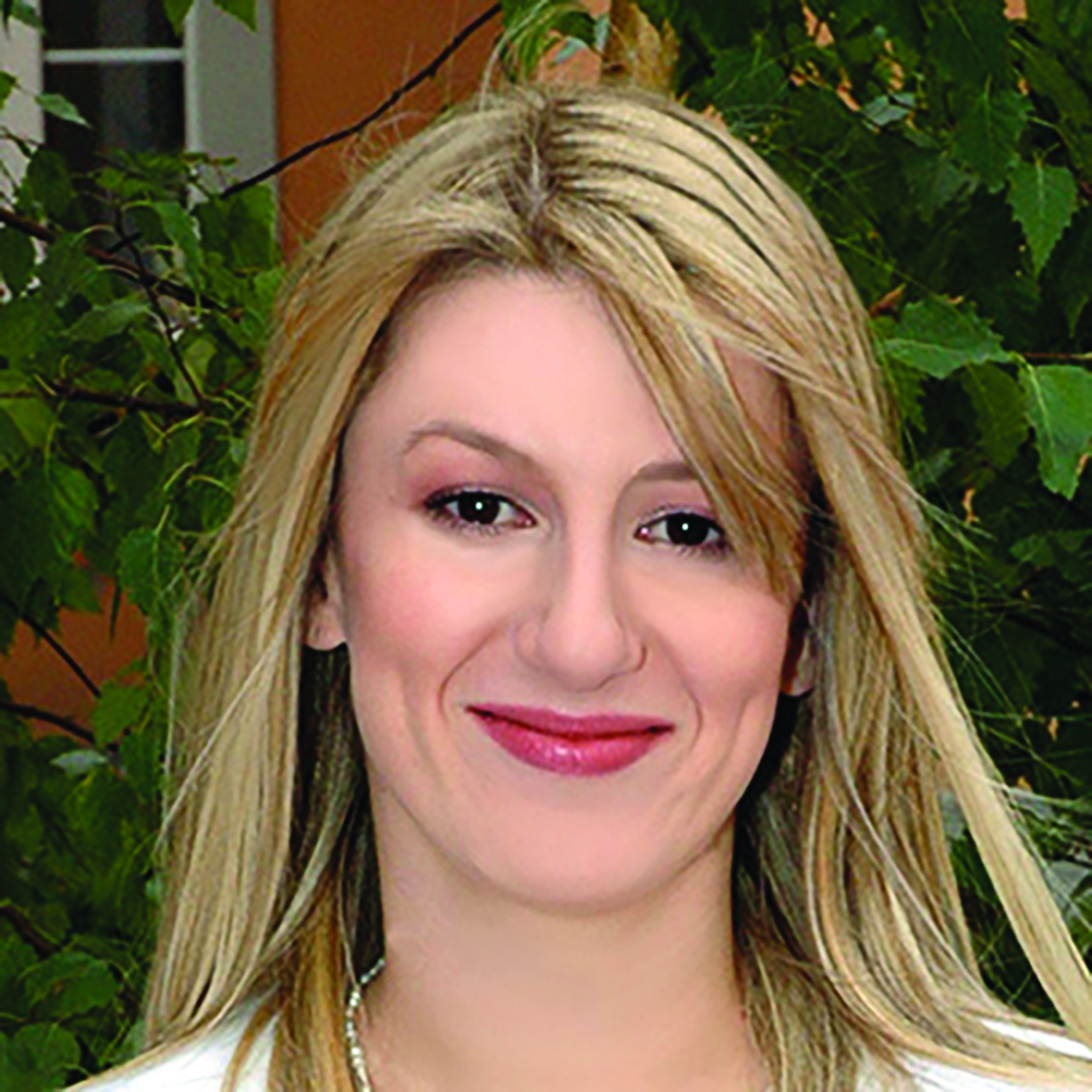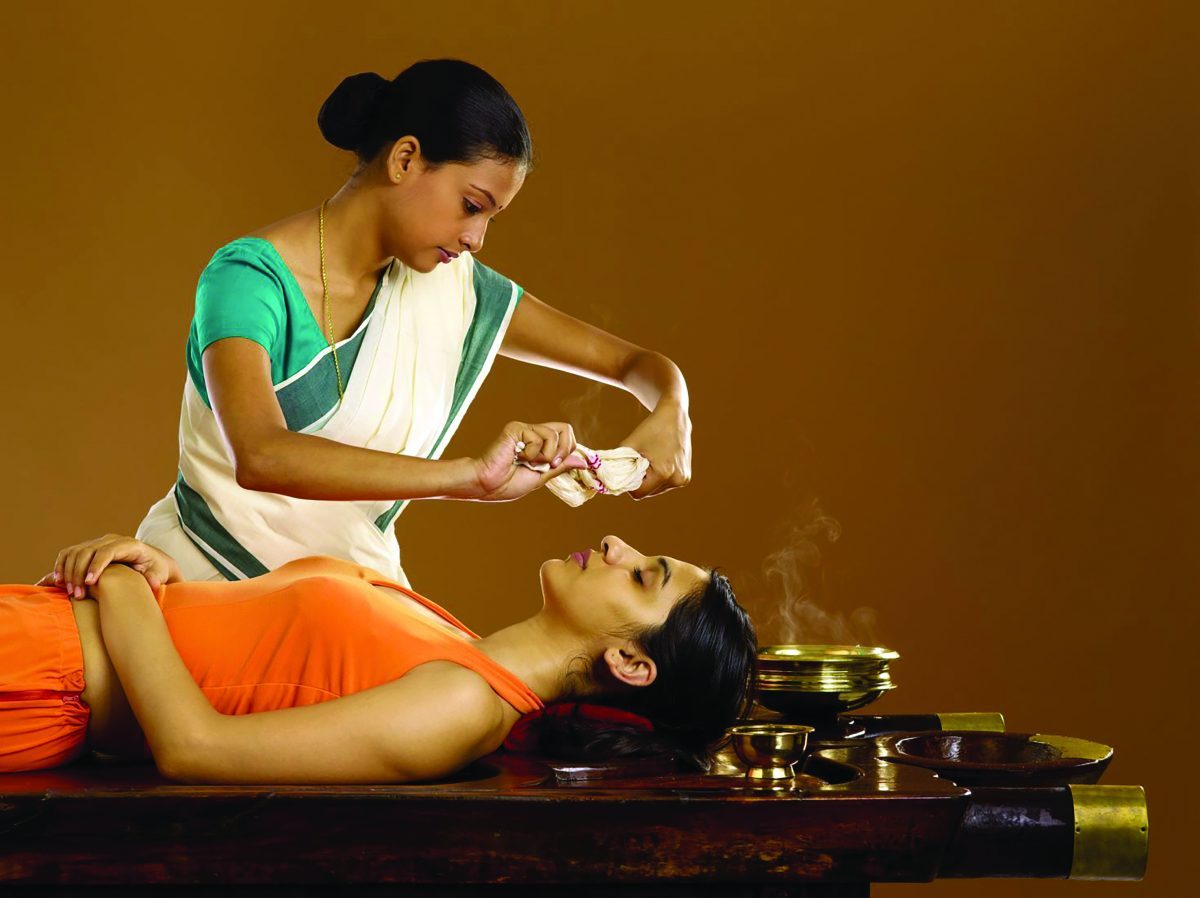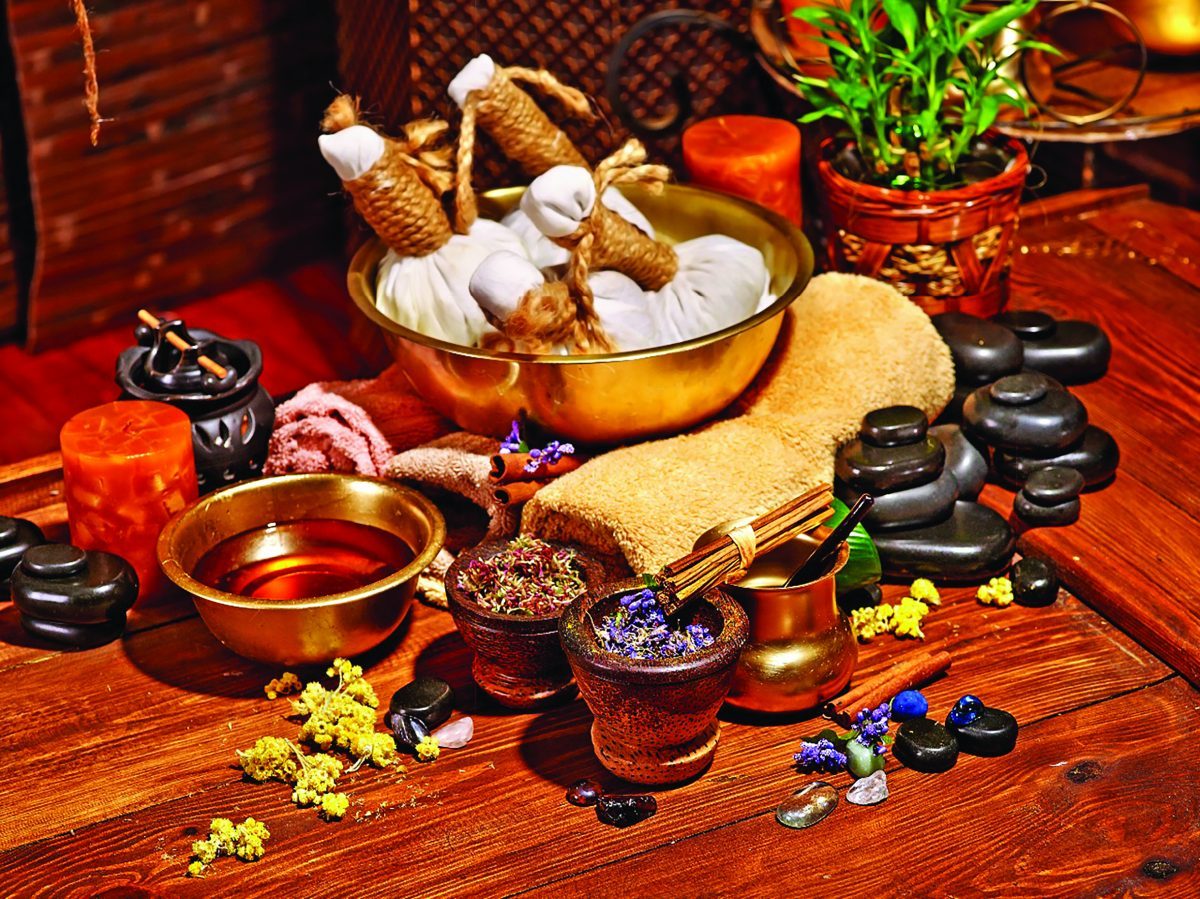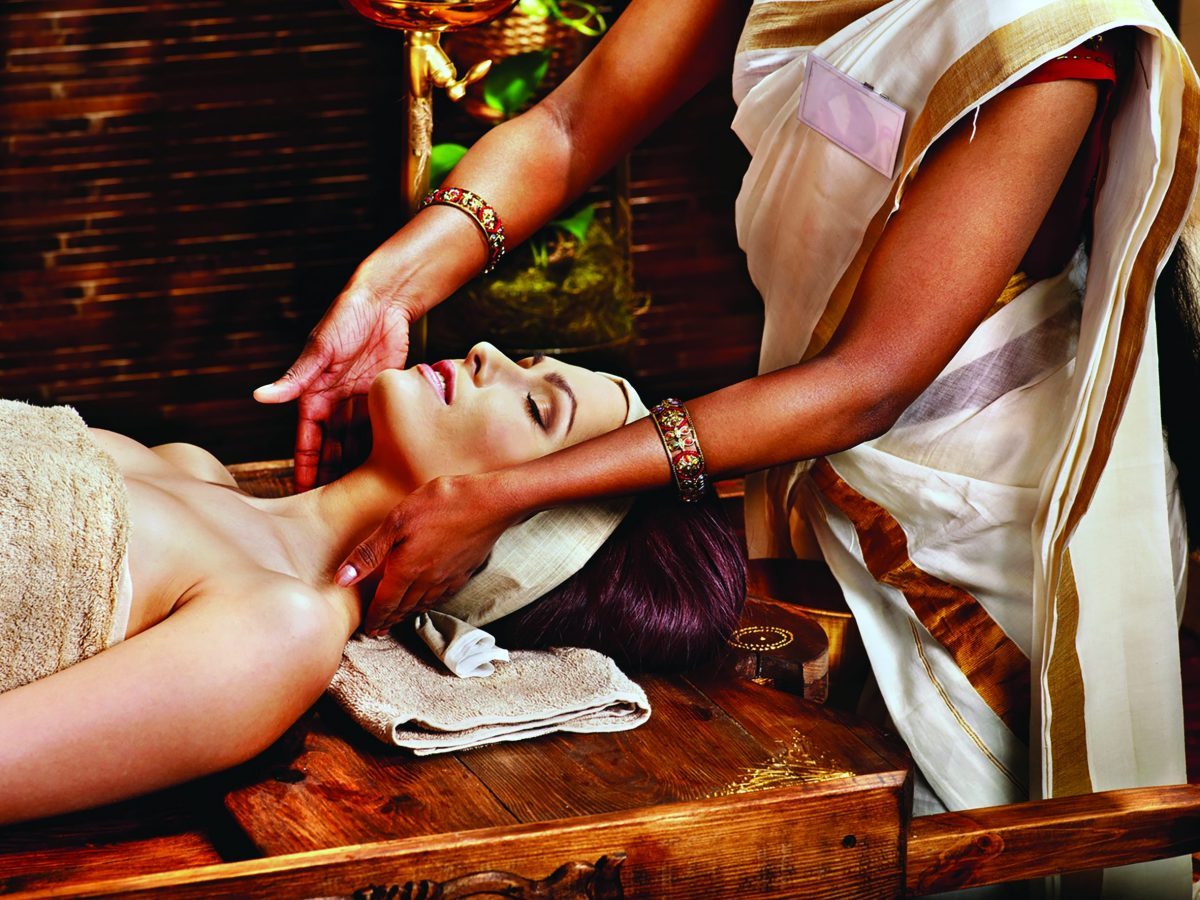The revival of Ayurveda in 20th century, the most ancient traditional system of natural health care, recommended by WHO, has witnessed its integration into the health systems of many countries. Serbia has been no exception.

Mr. Branko Čičić, President, Ayurveda Association of Serbia in conversation with Dr Gordana Marković, MD, PhD, Member of the State Expert Committee on Complementary Medicine of the Ministry of Health RS and the principal professor at the postgraduate program in traditional medicine, at Alma Mater Euoropea University, Maribor, Slovenia.
Dr Marković, could you, please, tell us what is Ayurveda?
Ayurveda is an ancient system of Indian medicine, which has been for thousands of years helping the people to live a balanced, integrated life and grow towards the state of perfect health. Literary translated, Ayurveda means the “science of life” or the “science of longevity”. In the 20th century, it has been revived in its original fullness by Maharishi Mahesh Yogi, who re-introduced the element of consciousness and the practice of Nadi Vigyan (pulse diagnosis), as the central elements and key practices for diagnostics and treatment of imbalances and creation of individual and collective health.
Ayurveda is an ancient system of Indian medicine, which has been for thousands of years helping the people to live a balanced, integrated life
What is the ultimate goal of Ayurveda?
By following Ayurvedic recommendations, we are harmonizing our being with the Nature and its cycles we are part of, and thus, in a most natural way, easily and simply improving our own health. We gradually learn how to re-connect to ourselves, gain the inner peace and attract bliss into our lives, which is the basis of perfect health. Ayurveda has been used in many of the developed countries around the world, and thanks to the decision of our Ministry of Health, it has been incorporated into the systems of traditional medicines practiced in the Republic of Serbia.
The main goal of Ayurveda is not so much the fight against the disease. Rather, it is to improve the defense capacities of our physiology to the level that is enabling us to remain immune to different damaging agencies in our environment. This is easily achieved by the introduction of different modalities of Ayurveda in our everyday life. Once we begin to use them, they establish the natural, perfect balance between mind, body and the feelings, which is the basis of good health. Ayurvedic knowledge gives every man and woman the knowledge of his or her personal capacities and weak points. On the basis of these, the Ayurvedic doctor prescribes the prevention measures or a therapy. All the recommendations in Ayurvedic medicine are specific in that they are tailored for each of us individually and according to our own, personal needs. This is the secret behind its extraordinary efficiency.

What are the main principals of Ayurveda?
According to Ayurveda, all living and non-living world are guided by the three main principals, called Vata Dosha, Pitta Dosha and Kapha Dosha. These three are very essential concepts in Ayurveda, upon which prevention, diagnosis and therapy are based.
Vata coordinates the locomotor system in our organism that enables us to move, circulation of blood, movement of lungs while inhaling and exhaling, peristalsis of the intestines, activity of the nervous system, as well as the most subtle process on the level of our genetic material. When Vata is imbalanced, different psychological and neurological diseases may occur, such as chronic pain, flatulence, constipation, insomnia, anxiety, as well as many other health disorders. Pitta dosha coordinates metabolic processes and the energy exchange, and therefore it is responsible for digestion, regulation of temperature, hormone production and activity of our glands. When Pitta is not in balance, hormonal imbalance, blood and liver diseases, gastritis, ulcer, irritability, anger, etc may occur. Kapha provides for our bodily structure, biological strength, immunity etc. Its imbalance may produce swelling, diabetes, asthma, week immunity etc.
When each of the doshas coordinates its functions well, we are healthy, happy, well-meaning and wise. With the occurrence of imbalance in our physiology, natural processes are changing their direction, the functioning of the organs are disturbed and little by little, different diseases develop, depending on the type and the degree of imbalance.
Ayurveda comprises of exceptionally complex body of preventive measures and different, widely applicable therapeutic modalities
Is Ayurveda complementary with the western medicine?
Ayurveda comprises of exceptionally complex body of preventive measures and different, widely applicable therapeutic modalities. Application of Ayurveda is completely complementary with western medicine and can significantly improve professional skills of every doctor, irrespective of his or her specialty. The application of this knowledge opens up new horizons in treating patients in both, diagnosing and the selection of individual therapeutic modalities. The doctor creates the treatment considering the mental, bodily and social aspects of the patient’s personality, as well as the environmental and physical conditions he lives in. In this way, the doctor provides the client with the best support in finding his own life-style and balance. And due to very high efficiency in treating patients, preventing the disease and improving individual and collective health, Ayurveda significantly reduces health related costs, both for the patient and the health system.

What are the diagnostic procedures in Ayurveda?
The most important diagnostic method to detect the state of our physiology is pulse diagnosis. This method enables the Ayurvedic doctor get an insight, in the matter of minutes, into the quality of the doshas, subdoshas, bodily tissues, digestive fire, as well as into the other characteristics of the person under examination. Additional directions in creating the treatment plan for the person come from the analysis of his physical, mental and emotional characteristics, based on observation and anamnesis. The pulse diagnosis enables us to detect the imbalance in physiology much sooner before the first manifestation of the disease. Thanks to this, by applying an adequate treatment, we can achieve the reversal of balance and stop the process that would otherwise end in the disease.
According to Ayurveda, there are 6 levels of the development of the disease. First four levels are the different degrees of imbalance of the doshas, that the Ayurvedic doctor establishes by his knowledge of the patient’s pulse. However, the western medicine can recognize only the fifth stadium when the diseases has been manifested into the symptoms, while the sixth stadium is that which we call the chronic disease. As we said earlier, the precise stadiums of the development of the disease are detected by the pulse diagnosis.
In the world of fast changes, is it possible to live according to the principals of Ayurveda?
Yes, of course! Ayurvedic recommendations are very easily incorporated into the everyday life, because they are so natural and simple. The main principle is to set the life in accord with the rhythm of nature, i.e. to eat in accord with our constitution, to get enough of good rest, and in a way that the recommendations we are adopting into our daily routine do not become an additional source of stress. Of course, it is necessary that every individual gradually and willingly correct, with time, his or her habits that are not completely in accord with his or her own nature.
It is very important to be connected with ourselves, be aware of our needs and thus always naturally select the choices harmonious with our inner essence, benefiting our health. All the details, simple to follow instructions are given to the client during the Ayurvedic consultation. In most cases, consultation lasts for about 1 hour.
The world is overwhelmed with the epidemics of chronic, non-infectious diseases, such as high blood pressure, heart disease, stroke, ulcer, headaches, insomnia, anxiety and depression, to mention the few. Can Ayurveda help with these diseases in a really profound way?
With the perspective from both, Ayurveda and western medicine, the doctor has the ability to understand in a much deeper and more detailed way the processes occurring in the patient’s physiology. From this stems the treatment which is much more efficient and completely adjusted to the needs of every person individually.
The contribution of Ayurveda is exceptional in the treatment of diseases such as many digestive illnesses (GERB, chronic constipation, diarrhea…), cardiovascular diseases (hypertension, coronary heart disease…), mental disorders (anxiety, depression, sleep disorders..), headaches, respiratory diseases (allergic rhinitis, sinusitis, asthma, pharyngitis, chronic bronchitis…), disorders of the reproductive health (menstrual disorders, sterility, menopause…), obesity, endocrine disorders (diabetes, the hyper and hypo thyroiditis…), chronic burnout, muscular and skeletal disorders (osteoarthritis, rheumatoid arthritis, fibromyalgia, chronic back-pain…), and many others.

You have sub-specialized in the women’s health in Ayurveda, and you are one of the world’s main Ayurvedic experts in reproductive health in the western hemisphere. Could you, please, tell us how does the Ayurveda understand the health of a woman and what it can do for her?
According to Ayurveda, the reproductive health of a woman is the reflection of the functioning of all the physiological processes happening in her organism. It is intimately connected to the mental and emotional aspects of her personality. Modern way of living on a global level contributed to the disintegration from their Self and manifests itself in the constant increase of the number of the diseases such as endometriosis, too early menopause, sterility, hormonal imbalance, carcinoma of the reproductive organs and many others.
Pulse diagnosis enables to precisely define the main cause of the disease. This ancient knowledge gives us also clear instruction how to identify the etiological factors compromising women’s health and also how to create the life-style leading to reestablishment of balance in her physiology, elimination of the disease and the regeneration of the reproductive system. My experience in this regard is significant and more than positive.
Accredited program in Ayurveda
You are the principal professor at the postgraduate program in traditional medicine at the Alma Mater European University, in Maribor, Slovenia – the first EU university with the accredited program in Ayurveda. When is this program going to start ?
It is my great honor to be the part of this important program and have the opportunity to teach the knowledge of Ayurveda and share my practical experience with the doctors from all over the Europe. The program will officially start in 2021 in Maribor and is meant for the medical doctors from Europe and other places. It has been created by the leading experts in Maharishi AyurVeda. It consists of 6 blocks which will take place during the period of a year and a half. Each of the blocks is thematically whole and covers completely and in a very practical way selected topics of Ayurveda. The medical doctors shall be able to immediately and very efficiently apply the gained knowledge in their own practice. While enabling the doctor to be more efficient with his patient, this great knowledge also, provides him personally with the higher quality of everyday life.
[More information about Ayurveda at www.ajurveda.rs or by telephone at +381 63 896 3331]